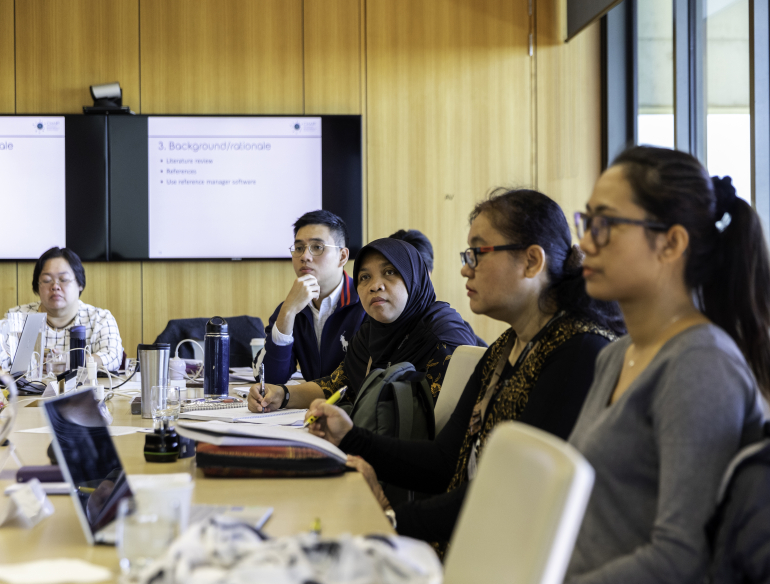The Kirby Institute has a strong track record of working with partners in our region with an ethos of two-way capacity building. We share our knowledge and expertise, and we work with diverse collaborators to train the next generation of infectious disease experts around the world. We learn from our partners about how to work effectively in the settings that they know best. We work collaboratively with local researchers to empower them with the expertise they need to conduct world-class research in their own communities.
Our first venture into regional capacity building was the HIV-NAT collaboration with the Thai Red Cross, which after 20 years has grown into an internationally recognised, Thai-led centre for research excellence, renowned for its outstanding science and strong community partnerships.
We apply these same principles to our collaborative undertakings in other countries of the Asia-Pacific region. We offer research training programs for people in low and middle countries, and those who emerge from our programs, whether they are short courses or doctoral degrees, have a strong sense of the synergy between science and community.
Our capacity building program has recently expanded to encompass laboratory-based training programs in the Indo-Pacific region, as well as increasing clinical trials capacity in countries like Indonesia and Mali. With major international partners like the World Health Organization, Clinton Health Access Initiative, FIND, and Unitaid, we ensure that global development initiatives benefit from the latest innovative research, technology and implementation strategies in infectious disease management.
Some initiatives we are involved in include:
- a multidisciplinary collaborative relationship with the Papua New Guinea Institute of Medical Research (PNGIMR).
- establishment of a now self-funding clinical research institute in Thailand (HIV-NAT).
- the Cooper HIV/AIDS Research Training (CHART) Program is an education and training initiative that aims to expand the number of skilled and experienced HIV researchers in the Asia-Pacific region, at the same time as addressing local HIV priorities.
- the IndoPacLab Program, a multi-institutional consortium established to strengthen laboratory functions for accurate, timely and scalable testing of COVID-19, HIV, TB and malaria.
- the Myanmar Australia Research Collaboration for Health (MARCH).
Programs working in this area:
- Global Health Program
- Viral Hepatitis Clinical Research Program
- Immunovirology and Pathogenesis Program
- Viral Hepatitis Epidemiology and Prevention Program
